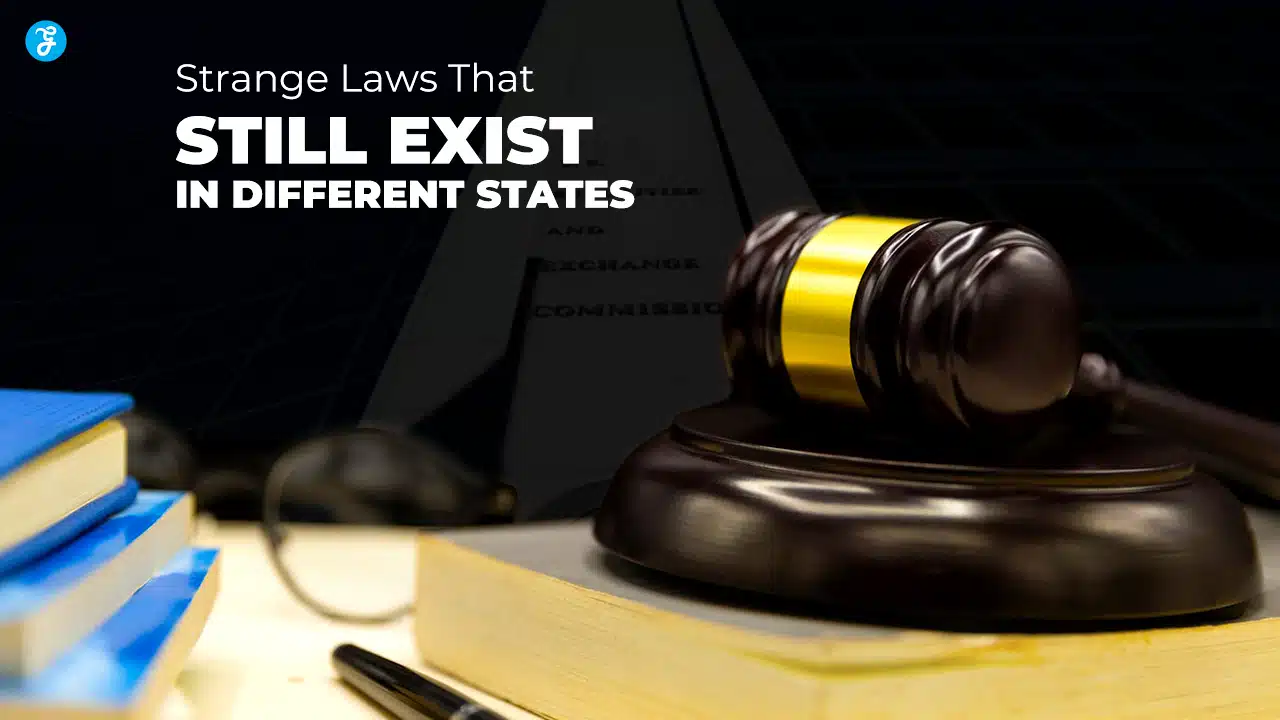Strange laws exist in many states across America. Some of these rules might seem funny or odd. You may wonder why they were made in the first place. Many of these laws are old and not enforced anymore, but they’re still on the books.
From bans on silly things to rules about everyday actions, these laws can be surprising. Some states have laws about animals, while others focus on food or behavior. Learning about these laws can be fun and show how times have changed.
1. It’s illegal to wrestle a bear in Alabama
You might think bear wrestling is a joke, but it was once real in Alabama. The state had to make a law against it in 1996.
Why would anyone want to wrestle a bear? It was a form of entertainment. People would pay to see humans try to take on these huge animals.
The Alabama legislature voted to ban bear wrestling. The House passed the bill 89-2, and the Senate approved it 23-0.
This law makes it illegal to make money from bear wrestling. You can’t promote, engage in, or be a spectator at these events.
The ban protects both people and bears. Bears used in these shows often faced cruel treatment. They might have their teeth and claws removed.
You’ll find this law funny, but it serves a real purpose. It stops animal abuse and keeps people safe from dangerous stunts.
Remember, laws often have serious reasons behind them. Even if they sound strange at first, they can protect both humans and animals.
2. You can’t have a sleeping donkey in a bathtub in Arizona
You might think this law sounds silly, but it’s a popular myth about Arizona. Many people claim it’s illegal for donkeys to sleep in bathtubs there.
The truth is, no such law exists in Arizona. You can let your donkey snooze in the tub if you want to.
This fake law probably started as a joke or misunderstanding. It’s been shared online and in books about weird laws for years.
Why would anyone make up a law about donkeys in bathtubs? It’s hard to say. Maybe someone thought it was funny, or they heard a similar story from another place.
Even though it’s not real, this “law” has become well-known. It’s often used as an example of strange rules that don’t make sense.
Next time you hear about this donkey bathtub law, you can set the record straight. It’s just a myth, not a real Arizona rule.
3. In California, it’s illegal to whistle for a lost canary before 7 a.m.
Have you ever lost a pet canary in Berkeley, California? If so, you might want to hold off on whistling for it in the early morning hours.
Berkeley has a strange law that prohibits whistling for lost canaries before 7 a.m. This rule aims to keep neighborhoods quiet during the early hours.
You might wonder why such a specific law exists. It’s part of noise control measures in the city. The law helps prevent disturbances while people are still sleeping.
What happens if you break this rule? You could face penalties for causing a noise disturbance. It’s best to wait until after 7 a.m. to start your search.
This law shows how cities sometimes create odd rules to address specific issues. In this case, it’s about balancing pet recovery with community peace and quiet.
Remember, if your canary goes missing in Berkeley, patience is key. You’ll need to wait for the clock to strike 7 before you can start whistling.
4. You can’t catch fish with your bare hands in Kansas
In Kansas, you might be surprised to learn that catching fish with your bare hands is against the law. This unusual rule applies across the entire state.
Why does this law exist? It’s meant to protect fish populations and promote safe fishing practices. The state wants to make sure fish aren’t harmed unnecessarily.
You might wonder what this banned practice is called. It’s known as “noodling” or “hand fishing.” It involves reaching into underwater spots like logs or rocks to grab fish.
The law has some exceptions. From June 15 to August 31, you can get a special permit for hand fishing. But you can only catch flathead catfish this way.
Where can you do this? It’s allowed in the Arkansas River and certain parts of federal reservoirs. But you must follow strict rules about where and when.
Remember, fishing with regular equipment is still perfectly fine in Kansas. You just need to use rods, reels, or nets instead of your bare hands.
This quirky law shows how states sometimes have unexpected rules. It’s part of Kansas’s efforts to manage its wildlife and natural resources responsibly.
5. In Kentucky, it’s illegal to dye a duckling blue and sell it
Did you know Kentucky has a law about blue ducklings? It’s true! You can’t dye a duckling blue and sell it by itself in the Bluegrass State.
This odd rule is part of Kentucky’s animal protection laws. It aims to stop people from selling dyed animals as novelty pets. The law doesn’t just cover ducklings – it applies to baby chicks and rabbits too.
But there’s a twist. You can sell blue ducklings if you have six or more of them. This part of the law tries to make sure dyed animals are only sold by real breeders, not as impulse buys.
Why blue? The law doesn’t say. Maybe blue dye was popular when the rule was made. Or maybe lawmakers just picked a color at random.
This law might seem silly, but it has a good goal. It tries to keep animals safe and stop people from treating them like toys. So next time you’re in Kentucky, remember – no blue ducklings for sale!
6. It’s illegal to tie a giraffe to a telephone pole in Georgia
You might think this law is a joke, but it’s real. In Georgia, you can’t tie a giraffe to a telephone pole. This odd rule dates back to the early 20th century.
Why does this law exist? It comes from a time when traveling circuses were common. These shows would parade exotic animals through towns to attract crowds.
Sometimes, circus workers would tie animals to poles while setting up. This could damage property and pose safety risks. Giraffes, being tall, could potentially interfere with telephone lines.
The law aimed to prevent such issues. It’s not just about giraffes, though. It covers all exotic animals that might cause problems if tied to poles.
Today, this law seems silly. You probably don’t have a giraffe to tie up anyway. But it reminds us how laws can stick around long after their original purpose fades.
Next time you’re in Georgia, remember this quirky rule. It’s just one of many strange laws that still exist in different states.
7. You must move cows uphill in the state of New York
In New York, you might find yourself in a strange situation with cows. There’s a law that says you have to move cows uphill, not downhill.
This odd rule comes from the state’s farming past. Back then, people thought moving cows uphill was safer. They worried cows could fall and hurt themselves going downhill.
Today, this law isn’t enforced much. Most farmers and cow owners probably don’t even know about it. But it’s still on the books, making New York’s laws a bit more interesting.
You might wonder why they haven’t removed this rule. Sometimes old laws just stick around. They get forgotten but never officially taken out.
So next time you’re in New York with cows, remember to point them uphill. You’ll be following a quirky piece of state history.
8. In Ohio, it’s illegal to get a fish drunk
Did you know Ohio has a law against giving alcohol to fish? It’s true! This odd rule exists to protect aquatic life.
You might wonder why anyone would try to get a fish drunk. Some people think it’s funny, but it can harm the fish. Alcohol affects fish differently than humans.
Fish absorb things through their gills. Putting alcohol in their water can make them sick or even kill them. The law aims to stop this cruel behavior.
While it seems silly, this rule shows Ohio cares about animal welfare. It’s part of broader efforts to protect wildlife and ecosystems.
You probably won’t see many people trying to give fish booze. But if you do, remember it’s against the law in Ohio. It’s best to leave fish to swim happily in their natural, alcohol-free habitats.
9. It’s illegal for a chicken to cross the road in Quitman, Georgia
You might think chickens have the freedom to roam wherever they please. But in Quitman, Georgia, these feathered friends face an unusual restriction.
It’s actually against the law for chickens to cross the road in this small Georgia town. This quirky rule has left many scratching their heads.
Why would such a law exist? The reasons aren’t clear. Some think it’s to keep chickens safe from traffic. Others believe it’s to prevent disruptions on busy streets.
Whatever the reason, chickens in Quitman need to stay on their side of the road. It’s a reminder that laws can sometimes be unexpected and even a bit silly.
This rule joins other strange laws in Georgia. For example, in Gainesville, you can’t eat fried chicken with a fork. And in Athens, you can’t give away goldfish to get people to play bingo.
So if you’re ever in Quitman, keep an eye out for law-abiding chickens. You’ll find them staying put on one side of the street, following this peculiar local rule.
10. You can’t make fake drugs in Arizona
Did you know Arizona has a law against making fake drugs? It’s true! The state takes a tough stance on imitation controlled substances.
You might wonder why this law exists. It’s meant to stop people from selling fake drugs that look like real ones. This can be dangerous for buyers who think they’re getting the real thing.
The law covers making, selling, or even having fake drugs to sell. It doesn’t matter if you’re not trying to pass them off as real. Just making something that looks like a drug can get you in trouble.
What counts as a fake drug? It could be candy shaped like pills or powder that looks like cocaine. Even if it’s just flour or sugar, it’s illegal if it’s made to seem like drugs.
Breaking this law is serious. You could face fines or jail time. The exact punishment depends on the details of each case.
Remember, this law is about public safety. It helps protect people from being tricked by fake substances that might harm them.
11. In Texas, you can’t sell your eye
Did you know that in Texas, it’s against the law to sell your eye? This strange rule is part of the Texas Penal Code Section 48.02. It’s not just eyes – the law covers selling any human organs.
You might wonder why such a law exists. It’s meant to stop people from selling body parts for money. This helps protect vulnerable individuals from exploitation.
The ban includes other organs too. You can’t sell your heart, kidneys, liver, lungs, or skin in Texas. It’s all part of the state’s effort to keep organ donation ethical and safe.
This law shows how states sometimes pass unusual rules to address specific concerns. While you probably weren’t planning to sell your eye, it’s good to know it’s not an option in the Lone Star State!
12. You can’t pump your own gas in Oregon
Did you know Oregon had a law against pumping your own gas? It’s true! This unusual rule lasted for over 70 years.
The ban started in 1951. Back then, Oregon worried that people might not handle gasoline safely. They thought trained workers should do it instead.
But times have changed. In 2023, Oregon finally allowed self-serve gas at all stations. Now you can choose to pump your own fuel if you want to.
Some people like the new freedom. It can be faster when stations are busy. You don’t have to wait for an attendant.
Others prefer the old way. They say it creates jobs and helps older or disabled drivers. Some just enjoy the convenience of staying in their car.
Gas stations can still offer full service if they want. Many keep attendants to help customers who need it. The new law gives you options.
So next time you’re driving through Oregon, you can decide. Do you want to pump your own gas or let someone else do it?
13. It’s illegal to send a surprise pizza in Louisiana
Did you know that sending an unexpected pizza to someone’s house in Louisiana could get you in trouble? It’s true! This odd law exists to stop prank deliveries and harassment.
The rule falls under a wider law about phone harassment. It covers any unwanted items sent to bother or upset people.
Why was this law created? Prank pizza orders were causing problems. Restaurants lost money, and people got annoyed by surprise deliveries.
You might think sending a pizza is a nice gesture. But in Louisiana, it’s best to check with the person first. Otherwise, you could face legal issues.
This law shows how states try to protect people from harassment. Even something that seems harmless, like a pizza, can be used to bother others.
Remember, laws can be different in each state. What’s okay in one place might not be in another. Always check local rules before pulling pranks or sending surprise gifts.
14. In Minnesota, it’s illegal to sleep naked
Did you know Minnesota has a law against sleeping in the buff? It’s true! But don’t worry – you can still snooze au naturel in your own home.
This quirky rule only applies to hotels, motels, and other public accommodations. So if you’re traveling through the Land of 10,000 Lakes, you might want to pack some pajamas.
The law aims to protect housekeeping staff and other guests from unexpected sights. It’s rarely enforced, but it’s still on the books.
Some claim it’s illegal to sleep naked even at home in Minnesota. This is a myth. You’re free to dress (or undress) as you please in your private space.
Remember, laws can change. Always check current regulations if you’re concerned about compliance.
15. You can’t mispronounce ‘Arkansas’ in Arkansas
You might think pronouncing state names is no big deal. But in Arkansas, it’s taken seriously.
Many people say “Ar-kansas” instead of the correct “Arkansaw.” This common mistake led to an interesting law.
In 1881, Arkansas passed a resolution about its name. It stated the proper spelling is “Arkansas” but should be said as “Arkansaw.”
The law aimed to clear up confusion. It doesn’t actually make mispronunciation illegal, though.
Arkansas got its name from a Native American tribe. French explorers changed the spelling, leading to today’s pronunciation.
So why does Kansas sound different? It comes from the same tribe name but uses English spelling rules.
Next time you visit Arkansas, you’ll know how to say it right. The locals will appreciate your effort to respect their state’s name.
Remember, it’s “Arkansaw” not “Ar-kansas.” This quirky law shows how much state pride matters in the Natural State.
Historical Background
Strange laws often have fascinating origins rooted in history. You might be surprised to learn why these odd regulations came into existence and why some still remain on the books today.
Origins of Unusual Laws
Many peculiar laws stem from outdated social norms and beliefs. In the past, religious views heavily influenced legislation. For example, bans on Sunday activities like ice cream consumption were meant to preserve the Sabbath as a day of rest. Some laws addressed specific local issues that no longer exist. Others were created to regulate unusual activities that seemed important at the time.
Attempts to control behavior also led to strange laws. Rules against wearing fake mustaches in church aimed to prevent disguises and maintain order. Animal-related laws often came from efforts to manage livestock in urban areas. As society changed, these laws became outdated but weren’t always removed.
Reasons for Persistence
You might wonder why these odd laws haven’t been erased. One reason is simple oversight. With thousands of laws on the books, outdated ones can slip through the cracks. Some states have started forming commissions to find and remove obsolete laws, but it’s a slow process.
Removing laws takes time and resources. Lawmakers often focus on pressing current issues rather than clearing out old regulations. Some strange laws stay because they’re seen as harmless or even amusing. They can become part of a state’s quirky identity.
In rare cases, old laws might be kept as a safeguard. Even if they seem silly now, they could have unforeseen uses in the future. This cautious approach sometimes keeps odd laws on the books long after their original purpose has faded.
Impact on Residents and Visitors
Strange laws can affect people’s daily lives and travel experiences in unexpected ways. These outdated or unusual regulations can lead to legal trouble and shape public opinions about different states.
Legal Consequences
You might face fines or even jail time for breaking weird laws. In Kansas, hitting a vending machine that ate your money is against the law. This means you could get in trouble just for trying to get your snack.
Some states have laws that seem silly but carry real penalties. For example, in Washington, it’s illegal to kill Bigfoot. If you hunt this mythical creature, you could spend 5 years in prison.
Always check local laws when visiting a new state. What seems normal at home might be illegal somewhere else.
Public Perception
Odd laws can make people see a state differently. When you hear about these rules, you might think the place is quirky or old-fashioned.
Some see these laws as fun facts to share with friends. Others worry they make their state look bad. Tourists might avoid places with strange rules they don’t understand.
Many people don’t know about these laws until they break them. This can lead to confusion and frustration. It can also make visitors feel unwelcome or scared to do normal things.
Local governments often keep these laws to preserve history or tradition. But this can clash with modern life and values.
Modern Relevance
Many strange laws still exist today. Some states have updated or removed outdated laws, while others keep unusual rules on the books.
Adaptation and Repeal
States often review and change old laws. Some weird laws get removed when they no longer make sense. For example, many places have gotten rid of rules about horses on streets. Other laws stay but aren’t enforced.
You might wonder why odd laws remain. Sometimes it’s just too much work to remove them. Other times, people forget the laws exist. A few places even keep strange laws as tourist attractions.
Contemporary Examples
You can still find odd laws in effect today. In Alabama, it’s illegal to carry an ice cream cone in your back pocket. Kentucky bans dyeing ducklings blue and selling them. These laws came from old concerns but seem silly now.
Some unusual rules address modern issues too. In California, you can’t eat an orange in your bathtub. This law aims to prevent plumbing problems from citrus oils.
While these laws exist, they’re rarely enforced. Police usually focus on more serious crimes. Still, knowing about these rules can be fun and show how laws evolve over time.
Takeaway: The Quirky Side of Law
The strange laws that still exist across various states in America are a fascinating glimpse into the history and culture of our legal system.
Though many of these laws seem outdated, irrelevant, or even humorous today, they often served important purposes at the time they were enacted.
While most of these laws are no longer enforced, they remain on the books, reminding us of the changes in social norms and values over time.
So the next time you travel to another state, it’s worth taking a moment to look up any odd regulations. Who knows?
You might just stumble upon a law that forbids carrying an ice cream cone in your back pocket or makes it illegal to whistle for a lost canary before 7 a.m.
These strange laws are part of the rich tapestry of American history, and while they may make us laugh, they also serve as a reminder of the ways in which our legal landscape has shifted and grown.







































